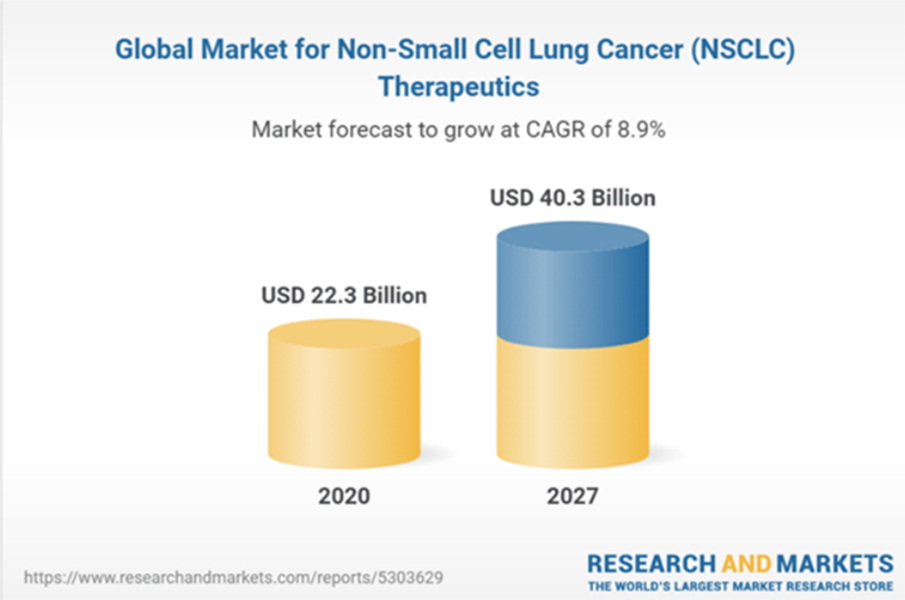Pipeline detail
FM701
| Classification | Description |
|---|---|
| FM701 |
|
| Indication |
|
| Unmet Needs |
|
| Mechanism of Action |
Anti-cancer effect mediated by dual inhibition of MDH (Malate Dehydrogenase) 1 / 2
|
| Efficacy |
|
| Market |
|
Lung cancer is mainly divided into small cell lung cancer and non-small cell lung cancer according to histological type. Types of non-small cell lung cancer include adenocarcinoma of the lung, squamous cell carcinoma, and large cell carcinoma. Non-small cell lung cancer grows relatively slowly compared to small cell lung cancer and spreads to surrounding tissues before metastasizing throughout the body. In the early stages, it can be cured through surgery. Although surgery is the most effective treatment option, surgery can be performed in less than a quarter of lung cancer patients
When a malignant tumor occurs due to a mutation in non-small cell lung cancer, it is refractory to standard treatment. Among mutations that cause low survival rates, a well-known example of refractory to standard treatment is KRAS-mutated carcinoma, and among these mutations, KRAS mutations and LKB1 are simultaneously expressed in about 7-14%.
KRAS/LKB1 co-expressing non-small cell lung cancer patients are basically refractory to standard anti-cancer treatments and do not show significant effects even when administered with immuno-anticancer drugs, so there is a high demand for the development of anti-cancer drugs that can effectively treat them.
-
- Inhibition of MDH1
- decreased NAD+ synthesis, lower influx rate of NADH into mitochondria
- Inhibition of fatty acid synthesis, influence the glutamine metabolism, and decreased level of NADPH
-
- Inhibition of MDH2
- Inhibition of NADH and OXPHS to reduce ATP synthesis
-
- MAS (Malate aspartate shuttle)
- Reduced influx of NADH into mitochondria leads to decreased ATP synthesis
- dual inhibition of MDH1/2 reduces total intracellular ATP and NADPH in tumor
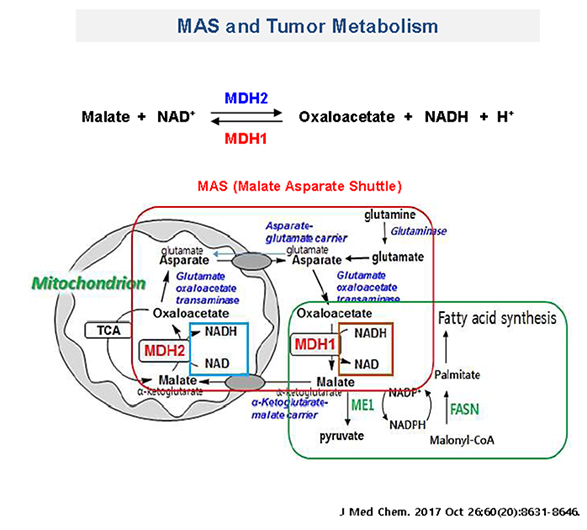


LKB1 mutation and vulnerabilities to metabolic stress
- Studies reports that KRAS/LKB1 mutation makes tumor vulnerable to metabolic stress
- The expression of MDH1/2 is highly correlated wit the survival rate of patients with NSCLC
- FM701 could effectively suppress KRAS/LKB1 mutant tumors by dual inhibition of MDH1/2
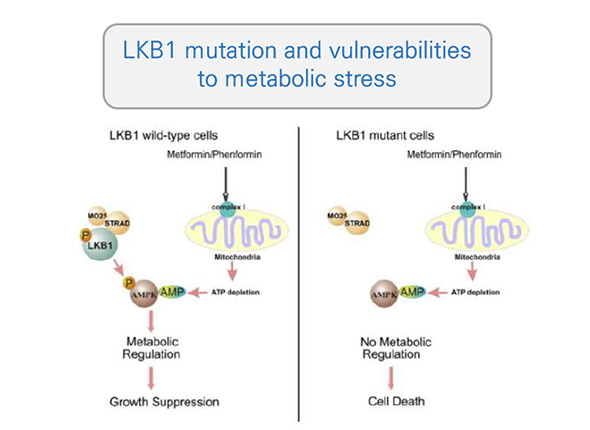


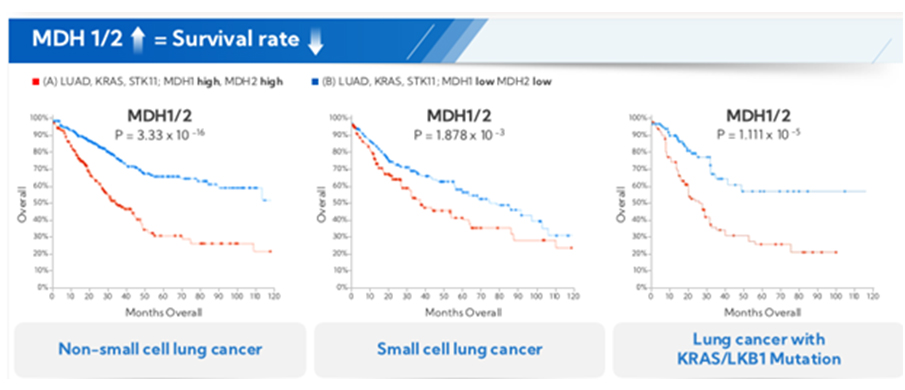


Inhibition of MDH1 and MDH2
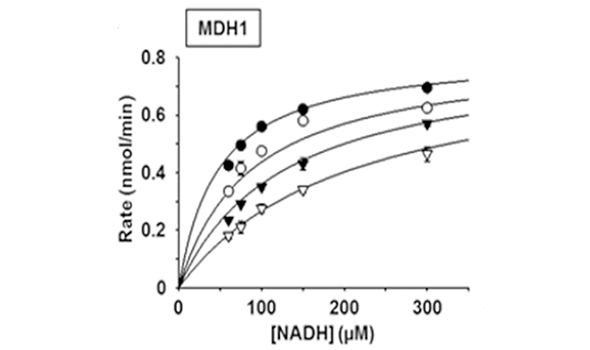


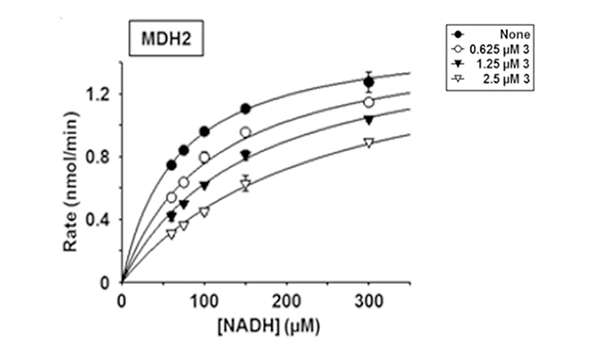


In vitro confirmation of tumor growth inhibition in MDH1/2 KO cell
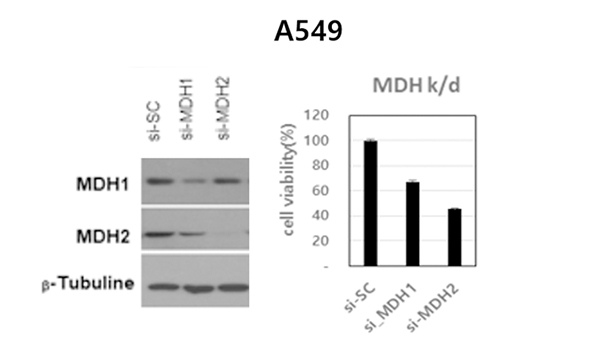


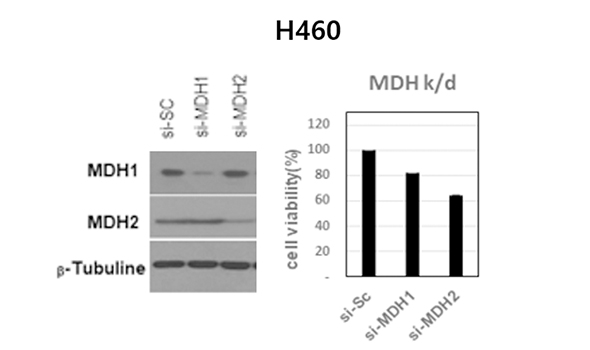


FM701’s In Vivo anti-cancer effects
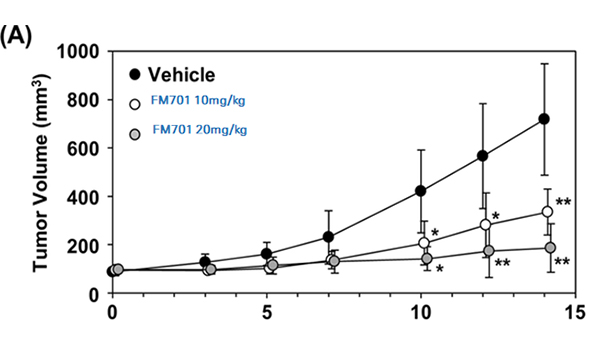


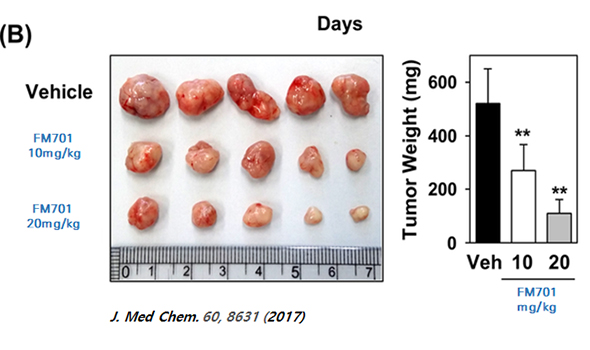


- Compound annual growth rate: 8.9 %
- NSCLC Global market size: 40.3bUSD by 2027
